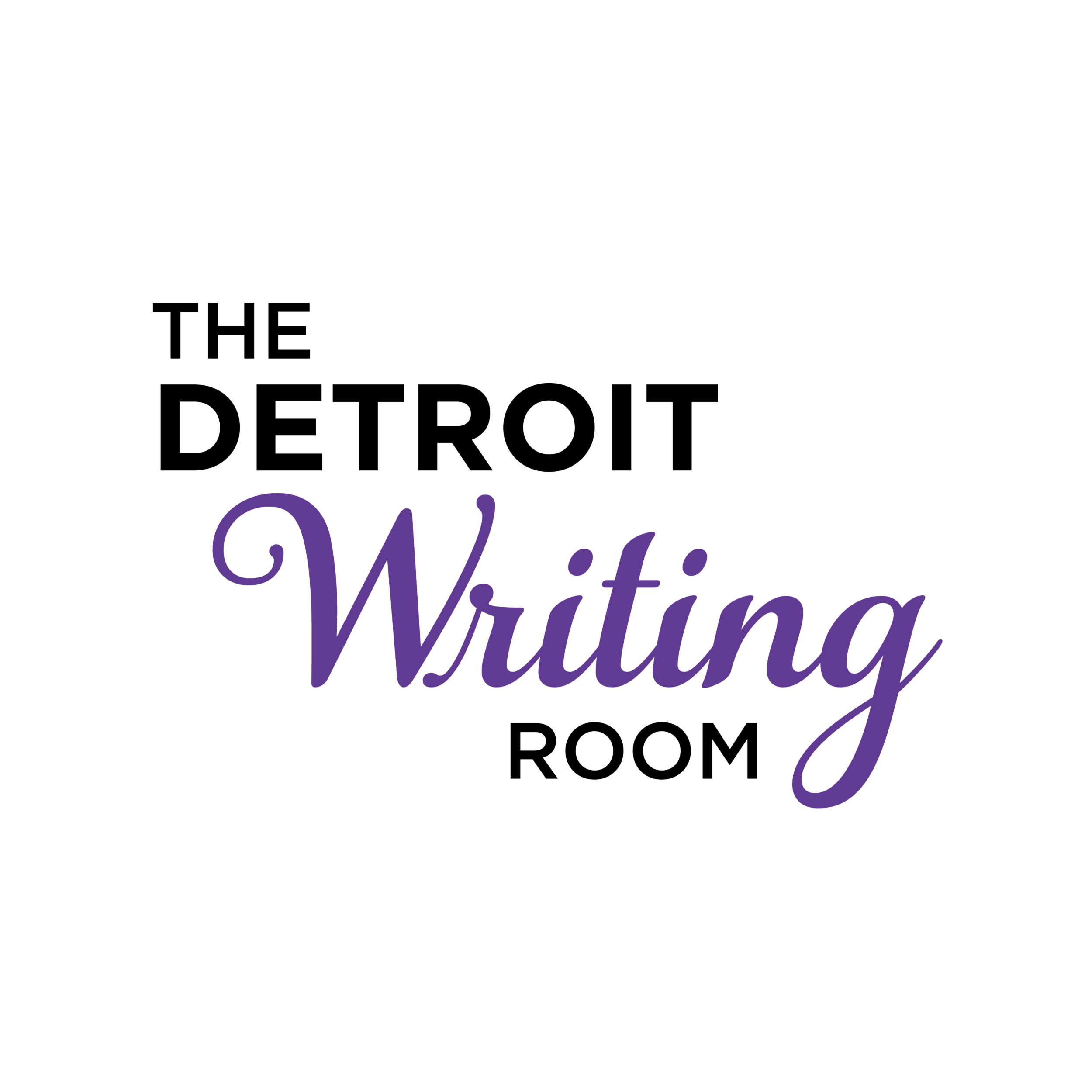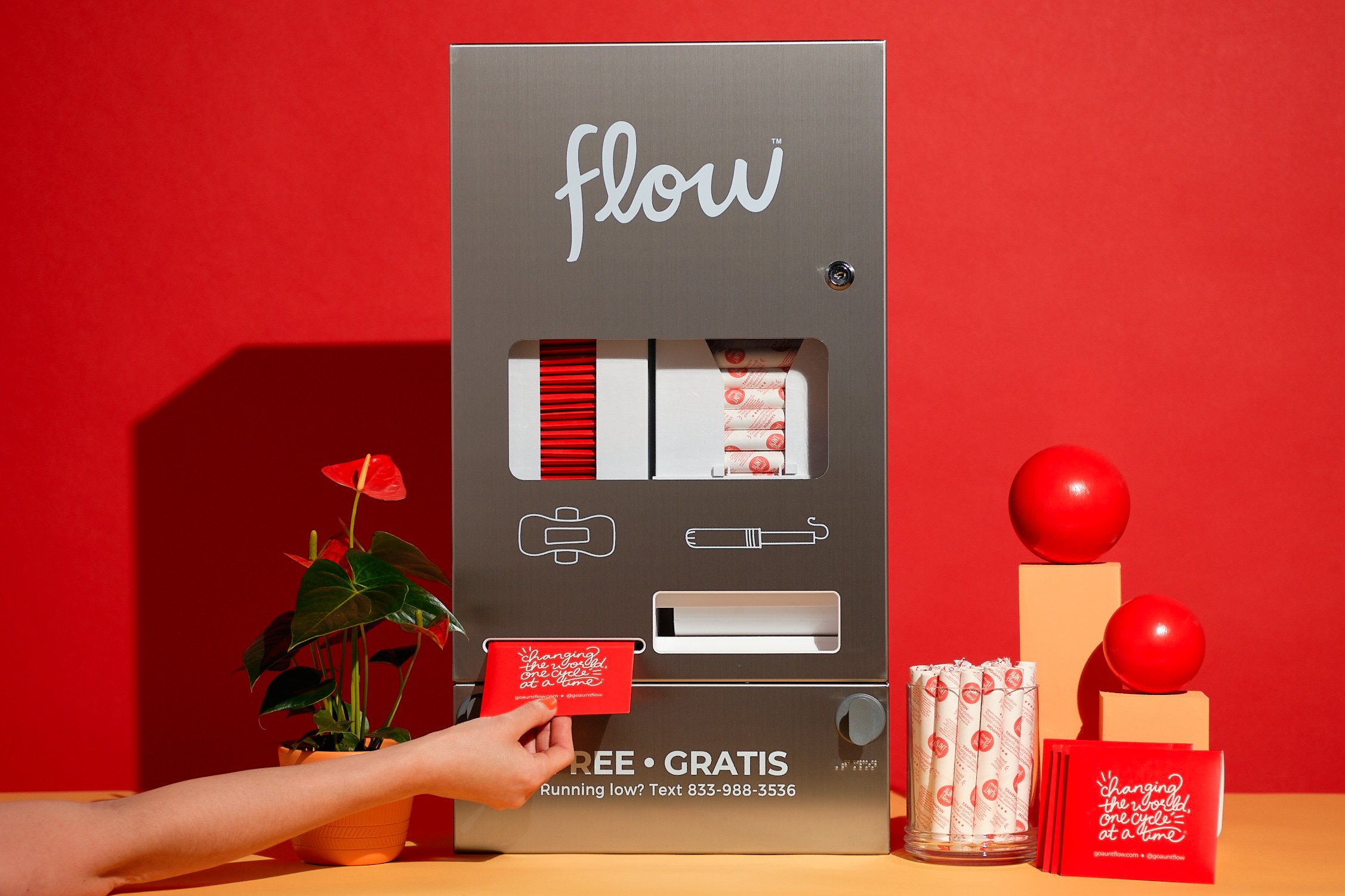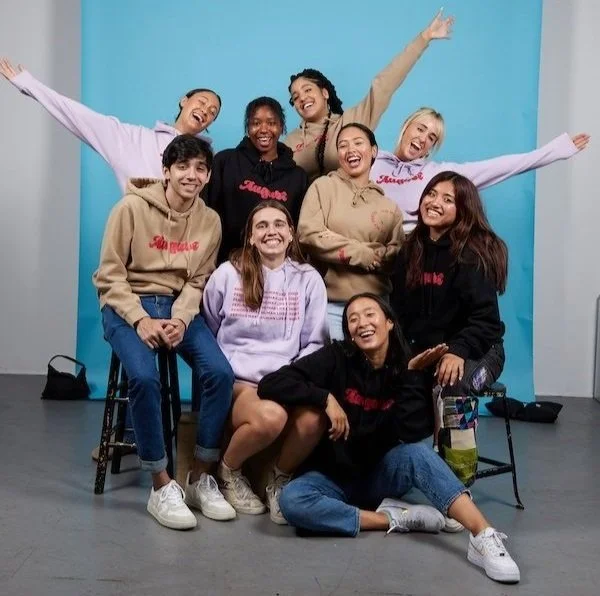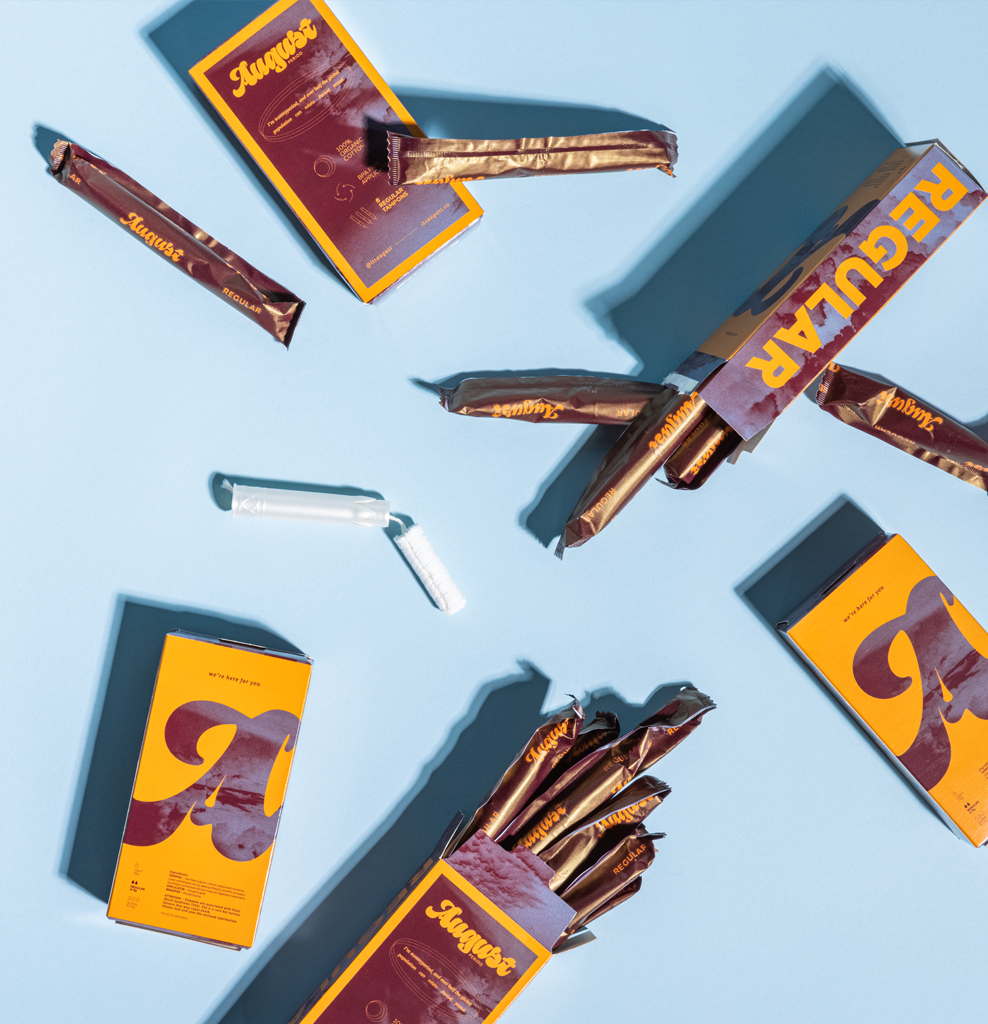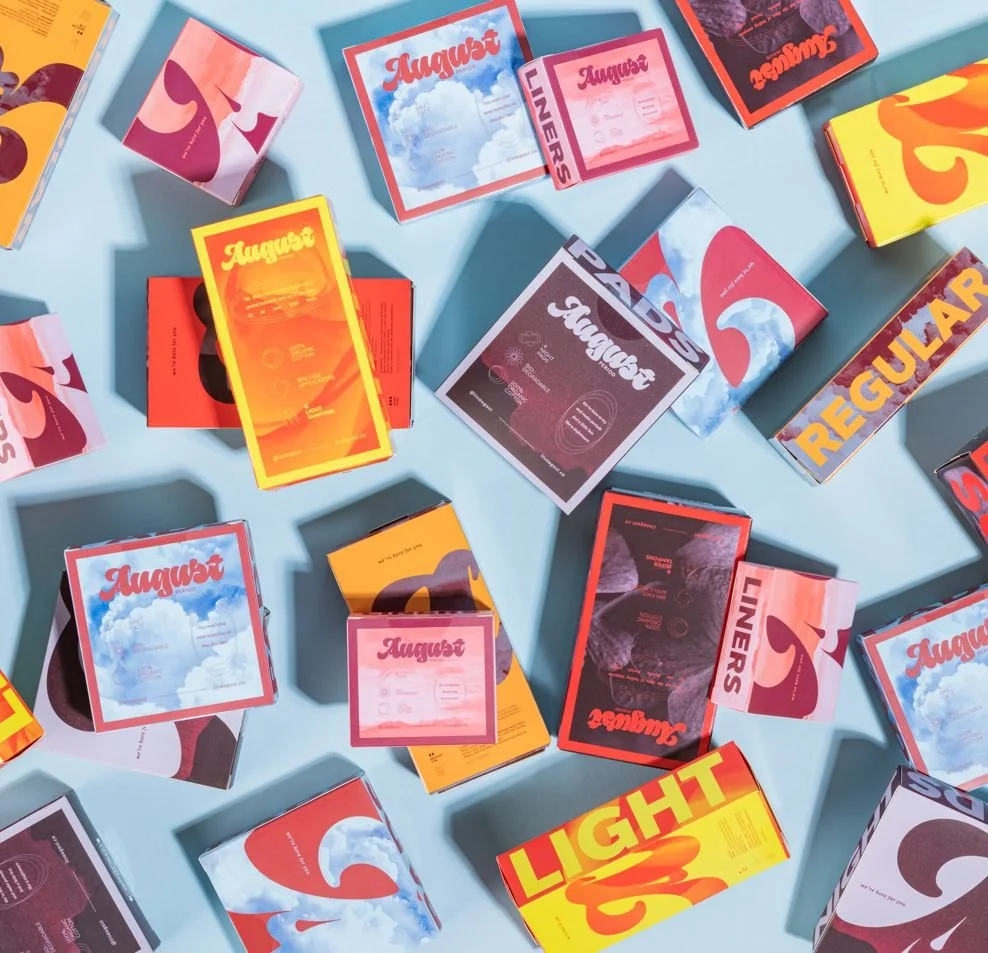They’re Period Products, Not Feminine Luxuries
Let’s redefine how we label menstrual products. Toilet paper isn’t gendered, so why are period products?
By Angel Gupta
Whether you’re walking down an aisle at Target or picking up some last-minute toiletries from the airport, you may have noticed that period products have their own section. Tampons, pads and menstrual cups sit in an aisle labeled “feminine hygiene” or “feminine care.” After picking up a product, you might notice that it costs a lot. A bit too much. Even in women’s restrooms, tampons and pads typically cost between 25 cents and a dollar, whereas toilet paper is free to use.
Period products are simply used to help with menstrual cycles. However, they cost more and have more stigma than products such as toilet paper and diapers. Much of the stigma comes from how we label these products. To begin with, we should not be calling them “feminine” or “luxurious.”
The Tax For a Non-Luxury
Unlike toilet paper, period products come with a heavy tax, typically referred to as a tampon tax.
“A tampon tax is a tax on essential period products, so it doesn’t differentiate between essential and non-essential products,” says Kate Barker Swindell, service and operations manager for the nonprofit PERIOD. Based in Portland, Oregon, PERIOD. provides education and services to eradicate period stigma.
The tampon tax creates an expensive barrier for individuals trying to access products. As movements to reform period care continue, many politicians and lawmakers are under pressure to remove the tax. In fact, according to the campaign Tax Free. Period, 32 states have introduced measures to eliminate the tax. Thirteen states have followed through.
A Product For All Identities
A common misconception is that only women get periods. Yet many people who do not identify as women have periods. On top of that, not all women have periods.
Rachel Wright is a New York psychotherapist who is open about conversations regarding mental health, sex and modern relationships.
When it comes to removing the “feminine” out of feminine luxury, there is a lack of education regarding why we shouldn’t call them feminine products.
“The way we use feminine is to refer to energy … so the way we add that to menstruation products is insane. Growing up and seeing that in Target … we don’t get the message that there is something wrong with it,” says psychotherapist Rachel Wright.
Wright is a mental health, sex and relationship expert from New York who offers educational workshops that destigmatize essential conversations. “We’re set up to fail,” she says. “We don’t get the education that is needed and the stigma makes it so that it’s harder to learn and ask questions, like who menstruates … and what products are for which people?”
Company Action for Change
As the conversation about how we label these products grows, many companies have started to or continue to change to become more inclusive.
One major challenge in this effort is the packaging. For example, the popular brand Always changed its packaging to remove the Venus symbol, which is typically associated with women. While there was backlash from those who saw period products as feminine products, many people supported the change in 2019. The move reminded the general public that period products are simply a care product for those who menstruate.
Feminine packaging also gives many politicians and lawmakers the wrong idea. “The way laws are formed depends on who is at the table and who is legislating. Period products have been misunderstood because those in (the) decision-making (process) don’t have periods. They come in cute boxes and are packaged to look nice, so many think that you don’t need them,” Swindell says.
Many companies and brands continue to develop their products to remove the “feminine” out of these products. Period-product and period dispenser brand, Aunt Flow, continues this conversation by providing discreetly packaged period products to anyone in need. Schools like Princeton University to companies like Google have used their products. Their dispensers also do not require quarters or spare change for access, which is helpful for those who either can’t afford the products or don’t have quarters.
Aunt Flow provides free tampons and pads to bathrooms rather than providing machines that require quarters or dollars. Photo courtesy Aunt Flow
Founded by Claire Coder, Aunt Flow is dedicated to providing free sustainable and discreet period products in restrooms. This includes making sure that everyone, regardless of their identity, ability or language, can use their products to do what they need to do. “Menstruation should be an inclusive conversation for all menstruators. That’s why we refer to all pads and tampons as ‘period products’ rather than ‘feminine hygiene products,’” Coder says.
Aunt Flow also organizes groups such as the “Flow Bros” for people who do not menstruate but support menstrual equity for everyone. That way, those who have periods aren’t the only ones responsible for educating others.
August is a company that emphasizes the importance of period conversation, safe and useable products and inclusiveness. Photo courtesy August
Recent market entrants also stand for period and menstrual equality. Co-founded by Nadya Okamoto and Nick Jain, August's menstrual products are sustainable, accessible and inclusive for everyone.
Okamoto is the founder of PERIOD. and author of “Period Power: A Manifesto for the Menstrual Movement,” both of which were done while she was in high school. She continues to advocate for menstrual equity through her company, speeches, social media and more. Both Okamoto and Jain have been selected for Forbes “30 Under 30” in recent years.
Their product has very gender-inclusive designs by using a variety of colors and designs aside from the typical pink and clouds. This includes the company's name, which is designed in red and means “dignity” and “respect.”
August’s social media shares important information regarding period products, and the #ASKAUGUST Q&A blog on the website features a medical board that answers questions about anything from titanium dioxide in products to conditions such as uterine fibroids. Their safe and secure products with quality material have earned positive reviews from customers.
The Conversation for the Future
So, where would all of this information take us? More conversation will eventually lead to more education, changing how society views periods, from lawmakers to the average citizen. “The more society adopts these ideas, the more the prices will go down and more people will have access to those products,” Swindell says.
It’s not just prices that are seeing an impact. In light of Roe v. Wade, the abortion conversation has opened up topics such as contraceptives, periods and more. “Calling things feminine is damaging. We saw this in the conversation when Roe got overturned. So many people started to understand that it’s not just women (that are impacted),” Wright says.
As the conversation grows, Wright, Swindell and many menstrual equity advocates are optimistic about its future effects. “If there are enough people giving out good information, then that will hopefully decrease the bad information that people receive.”
You can be a part of the conversation too! For more information, check out:
To support businesses that are also taking a stand, check out:
